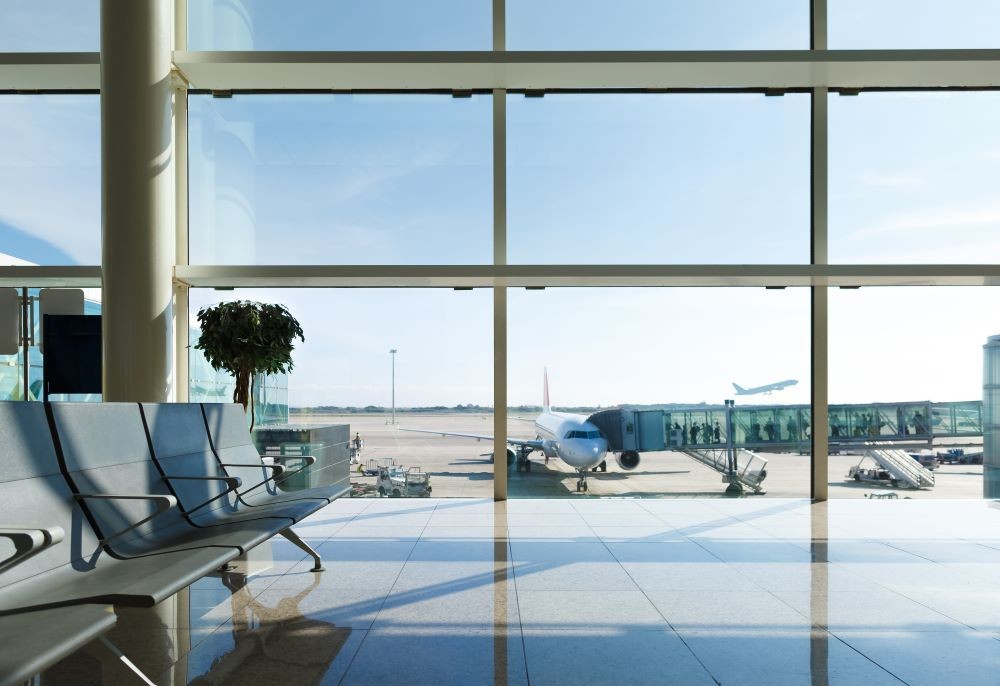While U.S. travel spend is approaching pre-pandemic numbers, uncertainty lies ahead for the segment as the busy summer season approaches. A strained travel system is still grappling with staffing shortages, flight delays and cancellations, and crowding and congestion at the airports following winter meltdowns by major airlines like Southwest.
U.S. Travel Association attributes much of these woes to the lack of investment by the federal government in the U.S. travel system, despite the positive bounce back of traveler numbers. In a new U.S. Travel survey from Ipsos, 81% of leisure travelers have travel planned in the next six months. Over a quarter of Americans (26%) plan to increase the amount they spend on leisure travel in the next three months as well.
However, the survey comes just weeks after the Federal Aviation Administration (FAA) asked airlines to pull back slots at airports in New York and Washington, D.C., this summer due to a lack of air traffic controller staffing.
“Americans are paying the price of years of chronic underinvestment—in technology and staffing—by the federal government in our nation’s air travel system,” said U.S. Travel Association President and CEO Geoff Freeman. “Air travelers are right to be frustrated and to demand more from Washington.”
Freeman specifically cited a lack of funding for the FAA overall, insufficient funds for air traffic control staffing and increasing demands for FAA resources, including new technologies like drones and advanced air mobility.
The possibility of stressful travel experiences is having a direct impact on decision making. According to the Ipsos survey, over half of Americans (52%) say they would travel more for leisure in the next six months if the travel experience was not as much of a hassle, significantly more than survey results reflected in Q1 (29%).
[Related: A Breakdown of the Transformation of Business Event Travel Between 2022-2023]
The Effect on Business Travel
The stress on the U.S. travel system this summer may also prevent business travel from making a full comeback.
In the U.S. Travel-J.D. Power business traveler survey from Q1 (March/early April), three in 10 business travelers cancelled or avoided business travel to attend a conference, convention or tradeshow and 25% avoided travel to visit a customer, supplier or other stakeholder in the past year, citing the following reasons:
- Overall time it took to fly to business event location (34%)
- Possibility of a flight delay or cancellation (24%)
The Ipsos survey found that 11% of business travelers cited the “possibility of flight cancellations and delays making their trip too unpredictable” as a reason they have not traveled more for business in the past six months.
Long U.S. visa wait times are also causing headaches for international conventioneers. Major tradeshows have reported a decline in attendance due to the 400-plus-day wait time for a U.S. visa interview needed by travelers from the top 10 inbound visa-requiring countries, according to Freeman.
Richard Vallaster, director of marketing, trade shows and events for A2Z by Personify and member of the Center for Exhibition Industry Research (CEIR) Council, thinks that the “casual attendees” are those with the most potential to be deterred by travel challenges.
“They may already be less motivated to attend events in this highly remote-first world. However, they may still seek digital alternatives to avoid travel complexities or need a practical reason to attend [recertification, for example]. ‘I am home most days to manage my household, family, pets, etc. What happens if I get stuck or delayed?’
“Event organizers must continue strengthening their value proposition to overcome these real or perceived barriers to avoid ‘good excuses’ for not attending,” he continued. “I am in the events industry and enjoy elite status-level travel but less willing to attend an event. The return on my time, investment and opportunity—all the ‘RO’ words—come into play.”
[Watch: No Agenda, a Monthly Current Events Broadcast for the Meetings Industry]
The Call to Congress
U.S. Travel Association is advocating for a number of items in this year’s FAA reauthorization bill, which is up in September:
- Provide at least $50 million per year for aviation workforce development programs to increase the supply of qualified pilots and mechanics.
- Provide $4.5 billion in funding for air traffic control infrastructure and technology. Also provide enough funding to hire 1,800 new air traffic controllers per year over the next three years, while fixing the staffing model to ensure the controllers are in the right places.
- Provide at least $4 billion per year in Airport Improvement Program Grants and enable medium and large-hub airports, which serve the majority of passengers, to keep more of their grant funding.
When asked what Congress should prioritize in the FAA reauthorization bill in the Ipsos survey, a majority of recent air travelers (55%) want Congress to prioritize improvements to the air travel experience by addressing hassles such as reducing flight delays and cancellations (19%), offering more direct flights by addressing the pilot shortage (21%) or reducing congestion in airports (15%). If Congress made any of these legislative changes, according to survey respondents, 33% would travel more.
“The success of America’s travel industry requires an air travel system that is modern, efficient, dependable and secure,” Freeman said. “Congress can make the critical investments now for our air travel system to meet demand for the future—and ensure that our economy can continue to grow.”
Read this next: U.S. Travel Spend Approaching Pre-Pandemic Levels—With a Caveat







